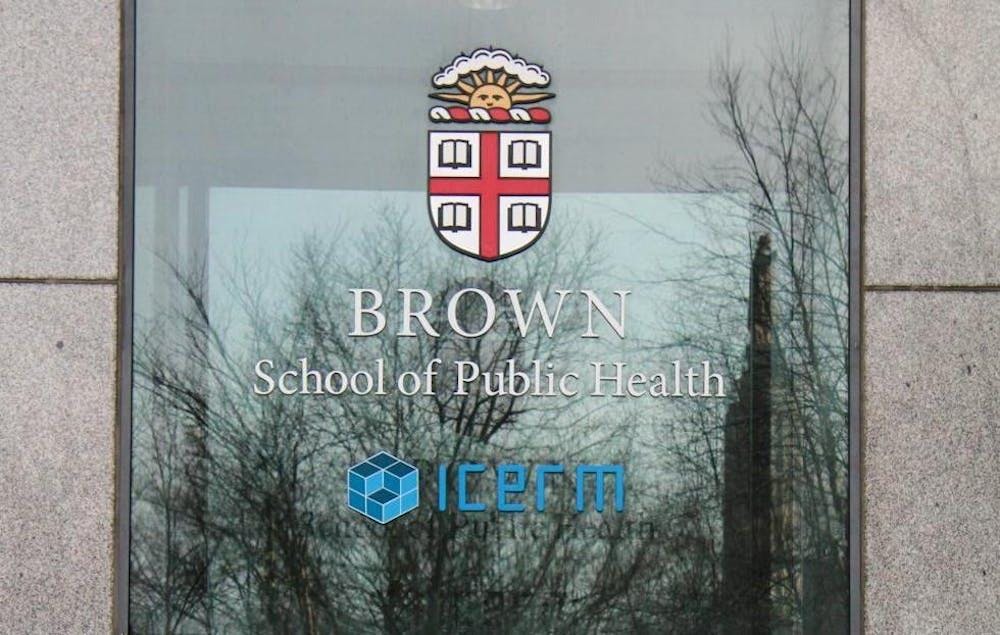Content warning: This article includes mentions of drug use, overdose and deaths from overdose.
Community advocates, overdose survivors and policymakers discussed harm reduction and overdose prevention at a Monday evening panel. The Donovan Program for Recovery and Substance-Free Activities hosted the event in collaboration with the School of Public Health’s People, Place and Health Collective.
Titled “Exploring Harm Reduction in Rhode Island and Nationwide” and moderated by Assistant Professor of Epidemiology Alexandra Collins, the panel discussed navigating harm reduction from different personal and policy standpoints. Speakers emphasized the need for comprehensive and widespread legislation to target the overdose crisis in Rhode Island and across the United States, focusing on the new Overdose Prevention Center, or OPC, coming to Providence this year.
Collins shared that last year the United States had over 112,000 overdose deaths, the highest number on record. Additionally, she noted that racial disparities in overdose deaths are growing, situating the panel in the historical context of the war on drugs.
In an interview with The Herald, Collins said “that kind of context is critical” to understanding the current overdose crisis. She added that it’s important to note that early harm reduction efforts did not come from academics, but from impacted communities.
“I may have a PhD, but I’m not an expert in this,” Collins said. “We really need to have all of these conversations driven by community. It’s always really critical to have dedicated space for people who are actually experts.”
Haley McKee — one of the panelists and a policymaker, lobbyist and overdose survivor — shared how she began advocating for harm reduction legislation after being released from prison. Since then, McKee has worked to “help community members who are directly impacted learn to find their voices.”
McKee helped advocate for a 2021 bill that authorized OPCs in Rhode Island. She said that bill was easier to pass than others because advocates were “working on this for a few years really quietly.” She noted that OPCs have less of a financial impact on the prison system, adding that OPCs don’t “threaten the existence of law enforcement.”
Director of the Governor’s Overdose Task Force at the Rhode Island Executive Office of Health and Human Services Catherine Schultz added that Rhode Island’s OPCs aren’t going to be funded using taxpayer money, which contributed to getting the bill passed. She said it also helped to have medical officials and health professionals supporting the legislation.
Senior Policy Counsel at the Drug Policy Alliance Grey Gardner said national political trends aren’t moving entirely in support of OPCs. “The efforts that have been made in Rhode Island are so unique,” Gardner said. “There’s a lot of fundamental work that needs to be done … to get policymakers to understand the fundamental concepts behind OPCs.”
The panelists all noted that the stigma around people who use drugs is a massive roadblock in getting legislation passed. Community Outreach Coordinator at the Community Care Alliance Christa Thomas-Sowers works in Woonsocket — which has the highest overdose rate in the state. She ran a needle exchange out of her backpack and now works at a drop-in center to provide people who use drugs with safe-use supplies.
“People balk at the idea of (OPCs) because it’s a little taboo,” Thomas-Sowers said, adding that it's important for people to put themselves in the “shoes of people who are currently dealing with chaotic substance use.”
“We have an individual who comes in regularly to the drop-in center who confided in me that they have overdosed 75 times,” Thomas-Sowers said. At harm reduction centers, she said that “people can come in, see a familiar face, have someone greet them by name (which) really makes a difference.”
The panelists emphasized the importance of humanizing the issue of drug addiction. “I haven’t met a single person who can’t relate on some level to … personal loss,” from overdose, McKee said.
Truly addressing overdose issues requires systemic change, the panelists agreed. “We need housing for people,” Thomas-Sowers said. “I’m disgusted by the housing crisis in this state. It’s making the work of harm reductionists and people in recovery 90 times harder.”
Gardner added that, in other states, Good Samaritan laws — which protect individuals who intervene in cases of overdose from legal repercussions — need to be expanded. McKee said that the overdose crisis is “a race and class issue” and that “anti-racist policy” is needed to address it.
McKee urged community members to “get to know your elected officials.” She stated that students can be particularly helpful in escalating direct actions, noting the greater risks in formerly incarcerated people doing so.
But Schultz underscored the importance that efforts toward change are “led by the community and the people impacted.”
Katherine Hill, a PhD student at the Yale School of Public Health, attended the panel and said she was inspired by McKee’s comments on direct action: students at institutions that “have a lot of power” can “use that power to affect change.”
Katherine Dunham, a senior research assistant at SPH, said she thinks it’s important that the University gives back to the broader community. “There’s such amazing stuff going on in the community that’s very under-resourced,” she said. “The University could support them in getting their monetary and infrastructural needs met.”
Collins hopes people left the panel “feeling like this issue is humanized (and) people feel inspired to contribute in some way.”

Ciara Meyer is a section editor from Saratoga Springs, New York. She plans on concentrating in Statistics and English Nonfiction. In her free time, she loves scrapbooking and building lego flowers.





